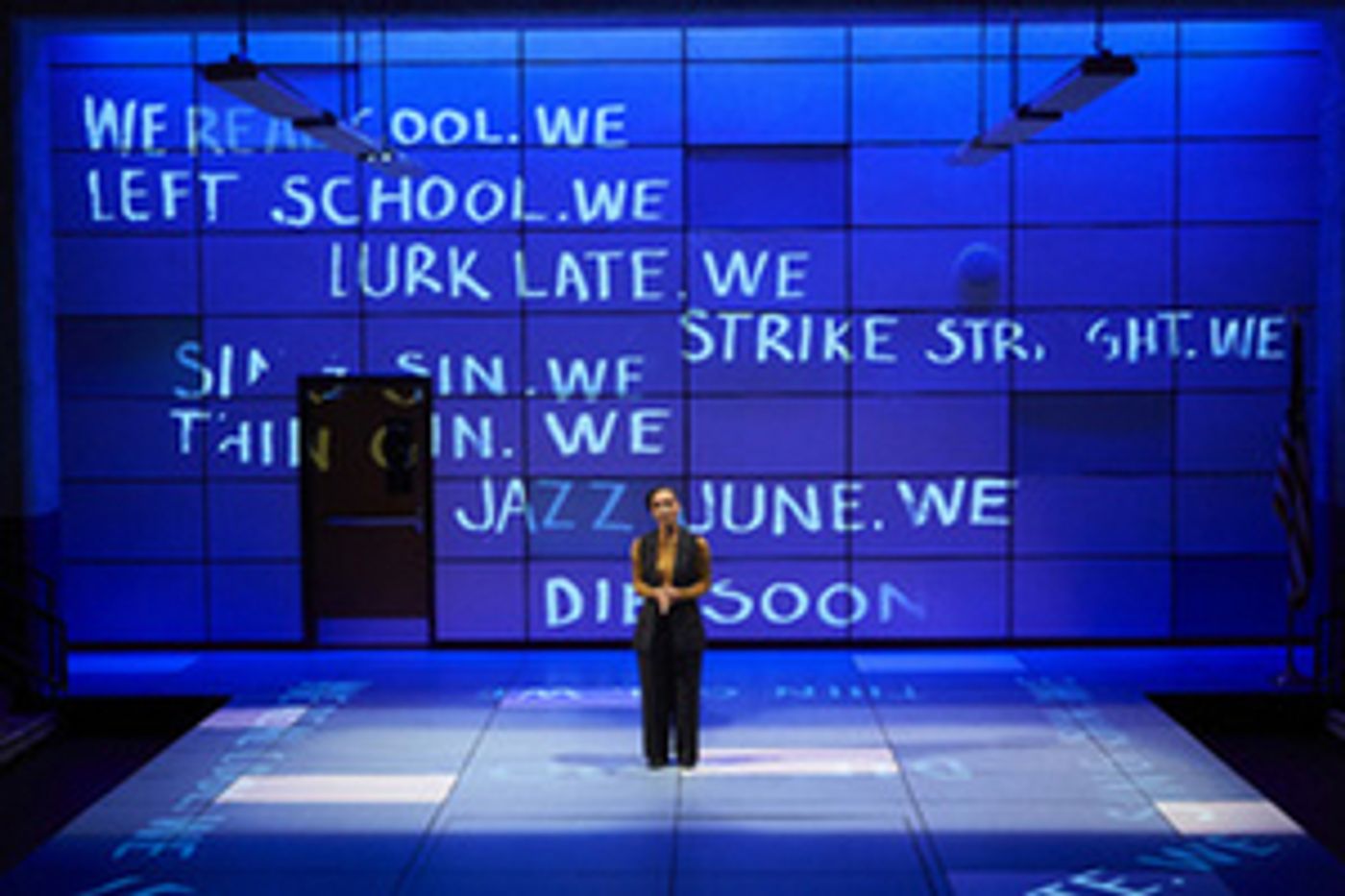Review: Compelling PIPELINE Wisely Brings Up More Questions Than It Answers

Multi-award-winning Dominique Morisseau is one of America's new and, in the view of many, the best of emerging playwrights.
Besides writing dramas, Morisseau, the recipient of the MacArthur Foundation "Genius Grant" for 2018, authored the book for the hit 2018 Broadway jukebox musical, "Ain't Too Proud-The Life and Times of the Temptations."
Her involvement in a musical comes as no surprise as Morisseau has said that music plays a huge part in her work. "It's a resource and clue to my work, and music plays a unifier among cultural barriers."
Her writings generally portray individuals and communities grappling with economic and social changes. This is the case with "Pipeline," the one-act ninety-minute production now on stage at Cleveland Play House, which takes on such issues as school disciplinary policies, the treatment of young black men, the psychological effect of divorce on the children, and single motherhood.
The play was nominated for five 2018 Lucille Lortel Awards, including that for Outstanding Play.
The story centers on Nya Joseph, an inner-city public high school teacher. Interestingly, the divorced mom sends her only son, Omari, to a private boarding school.
When Omari is involved in a controversial incident in which he physically attacks a white teacher who the boy feels has been harassing him, probably because of his race, he is threatened with expulsion. Nya is forced to figure out the source of Omari's anger issues, question her own parental decisions, and probe her son and her relationship with her head-strong and demanding ex-husband.
The title and much of the publicity for the play centers on the situation of the school-to-prison pipeline confronting young black men. The concept is based on the "no tolerance policy" which does not offer an opportunity to allow for explanation of the cause(s) for action. Rather than helping these students, the automatic expulsion forces them out of school, to become further victims of institutional racism, and opens the door to a life of crime as their only means to get by in a world which stresses educational accomplishment.
But, though a relevant part of the plot, the script is so much more than just the pipeline.
It asks the viewer to examine the cause of the lack of academic abilities by black students who often have had weak foundational educational programs and are above the curve in such difficulties as dyslexia and Attention Deficit Disorder.
It also illustrates the effects of a lack of male parental modeling due to absentee fathers. It encourages the discussion of teacher training, burnout, and the jailhouse atmosphere of schools with armed guards patrolling the halls.
Because of the multiplicity of issues, the title of the play may well be questioned as it may mislead in the script's purpose.
Reviews of the show have stated that the play "confirms Dominique Morisseau's reputation as a playwright of piercing eloquence." It has been called an emotionally harrowing, ethically ambiguous drama that raises barbed questions about class, race, parental duty, and the state of American education." And, that "Pipeline" is "at once an homage to such authors as Lorraine Hansberry, Langston Hughes and Amiri Baraka and yet firmly the product of a unique, deeply resonant sensibility."
The CPH production is intelligently directed by Steve H. Broadnax III. The action flows quickly, the technical aspects, especially Katherine Freer's projection designs, are outstanding.
Shilla Benning has an excellent touch with the costumes, in particular the mod clothing for teen-age Kadeem Ali Harris, who wears an array of fashionable, expensive sneakers and the most up-date logo-correct jackets, jeans and shirts, as well as the up-tight perfectly tailored suits worn by his father.
The production is being performed on the Outcalt Theatre's thrust stage. This means that not only are actor's backs sometimes to a large part of the audience, which makes seeing facial expressions difficult, it also creates hearing problems. This, of course, is balanced off by the audience being close-up and emotionally involved in the intense actions.
The cast is universally outstanding. Suzette Azariah Gunn presents a conflicted Nya, a mother who has done everything she can to make the right decisions, not only for her students, but for her son. In spite of this, her wards are failing. The woman's physical and emotional stress is obvious in what is a stunning performance.
Harris creates a molten pile of frustrated humanity as Omari. He is bright and motivated, but is frustrated by a lack of connection to his absent father who gives lip-service to their relationship, believing that paying child support and sending birthday presents, compensates for his lack of physical and emotional bonding.
Rachel Harker, the white teacher in a predominantly black school, gives a fine performance, clearly illustrating how even the best-meaning teacher simply cannot fight the waves of indifference, negative attitudes, and bent-up anger of her students. She makes one wonder why anyone would put up with those stressing conditions.
Bjorn DuPaty makes arrogance and self-styled pseudo-indifference real in his portrayal of Xavier, Omari's father and Nya's ex-husband.
Eric Robinson's Dun is properly sincere and caring as a security guard, trusted by the faculty, but in the unenviable position of having to enforce indefensible organizational rules.
Attractive Jade Radford is believable as Omari's girl-friend.
CAPSULE JUDGMENT: "Pipeline" is a powerful and intelligent new play which lays a smorgasbord of issues facing black young men, African American families, and the societal responsibility of working toward confronting the long smoldering problems concerning the education of people of color and the consequences of the system as now conceived. The CPH production is well-worth seeing. Expect to participate in a long conversation about the play on the ride home.
"Pipeline" runs through November 23, 2019. For tickets call 216-241-6000 or go to http://www.clevelandplayhouse.com.
Reader Reviews
Videos

